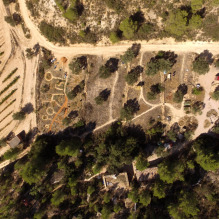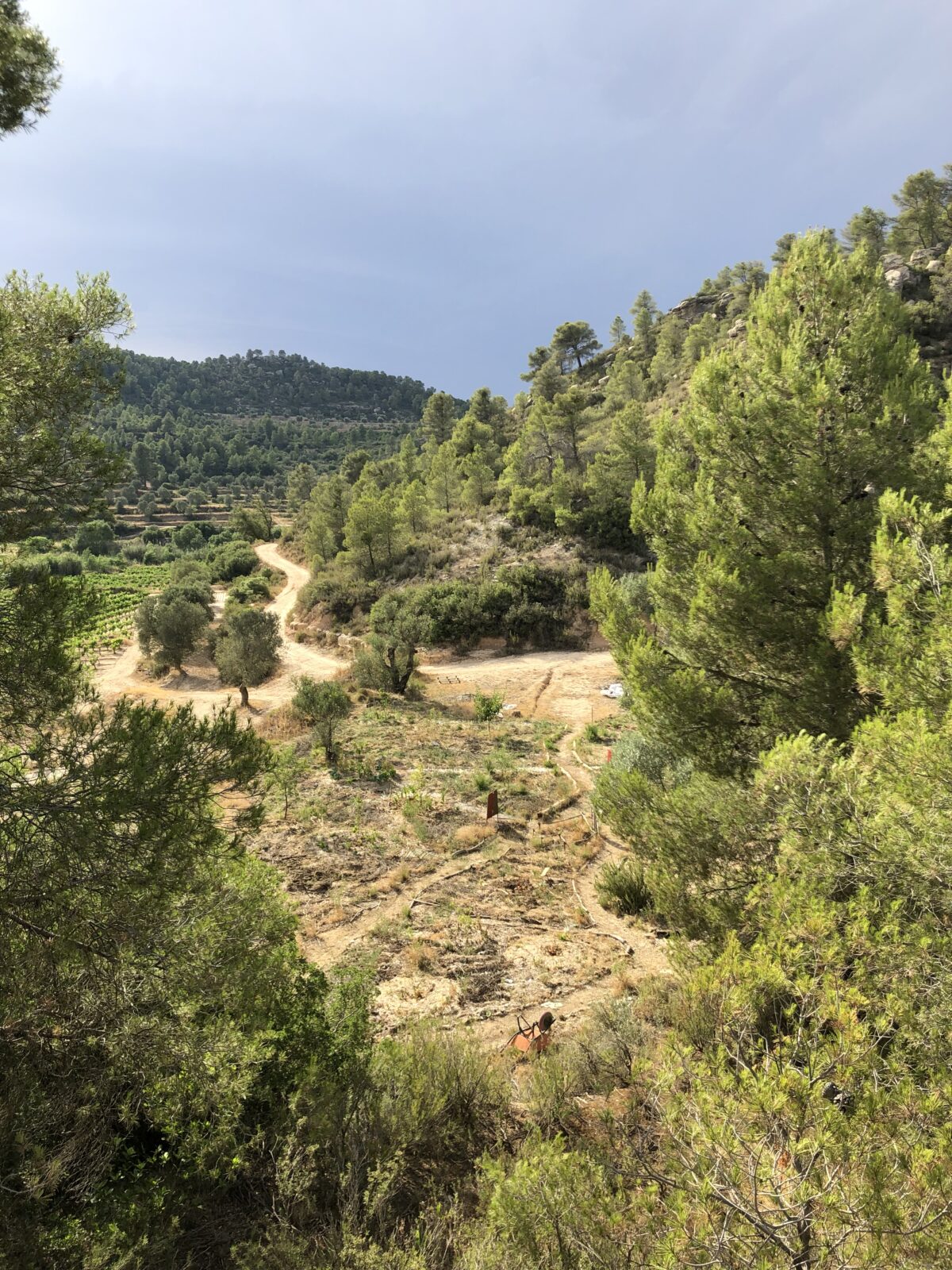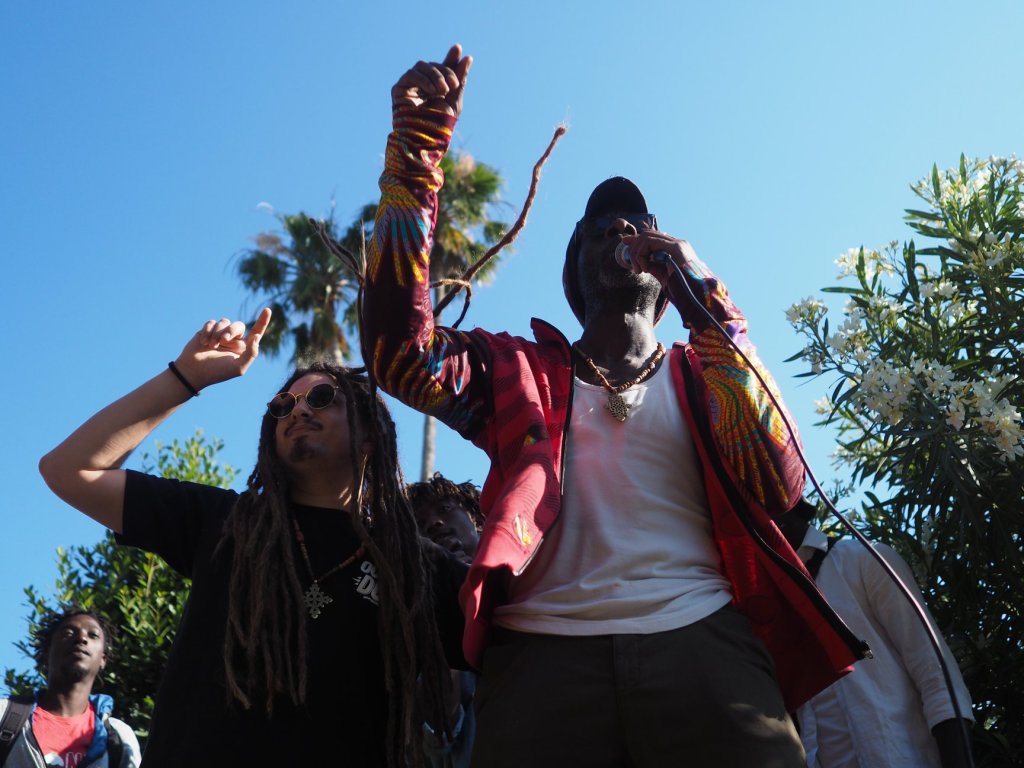
Our experiences in Boodaville Caseres 2022! – Eli and Aurore

“THE FOUR SEASONS IN BOODAVILLE
Boodaville has a wonderful landscape, surrounded by the pine trees of the Valrovira forest. A place of silence, a sanctuary of tranquillity which makes it easy to get closer and to listen to yourself and to the phases of nature. I have chosen to spend almost a year here and I have been able to observe the change of nature around me in the four seasons. The colours of the leaves, the smell of the air, the texture of the earth, the songs of the birds and the bitter taste of freshly harvested olives. Everything continues at a slow and relentless pace. I thank all the people who have participated in this life-changing experience of mine: Anna and her family, all the 2022 volunteers, all the people who helped or just stopped by to visit and perhaps enjoy the starry sky.
Thank you!
Elisa”
I am Aurore, I am 22 years old and I am from France. I lived in Boodaville for 3,5 months. It was a great experience of life.
I came to Caseres the 1st of September. It was still the summer, and I participated in the wine harvest. We also harvested the field of grapes next to Boodaville. Thanks to the bike I discovered many places around Boodaville. Thanks to the tracks network I went to Pyñeres, Batea, Arens de lledó, Arnes, els Ports, Horta de San Juan, Calaceite, and other places of nature. With Elisa’s car we also visited some places. Even if these tracks seem abandoned or isolated you can find many beauty, and some art. The Algars river between Caseres and Boodaville is also a great place to take a bath. You can stay there and chill without seeing anyone. Here you can experience calm and relaxation.
In Boodaville I’ve been introduced to the world of permaculture. Laura, our tutor, gave us some “classes” and we practiced too. I learned about the concept of food forest, and about “micro raices”. Living in a place that takes care of plants and seeing everything growing up is very satisfying.
One of our tasks was to observe the place, to take time to live there on this land, to watch plants, trees etc. At the beginning I didn’t really understand why it was that important, but next I understand that in permaculture you have to know extremely well your land like a friend or like a pet that you have to tame. Watching is everything, everyday, threw every season. It allows you to know how to manage the water, where you have to put your plants etc.
In the fall of September we planted a garden for the winter, it has a shape of a spiral with sun rays. I like that part of design in permaculture, there is a big dimension of art. There is also in permaculture a dimension of philosophy. It’s probably about that part that I learn more in Boodaville.
I learn to respect the land and the earth, respect humans, and Humanity, and be generous with both. I learned about sharing what you have, everything, ideas like meals. It was really great to live with Laura, Elisa, Fran y Eric. I learned a lot from each one and I enjoy sharing many things with them.
Thanks to Boodaville I discovered permaculture and an alternative world with people who share these values. I visited some other permaculture projects who open their doors and share their knowledge. I went to a Finca in Tenerife but also to 2 other projects in Catalunya. The goal is always autonomy.
Living in nature with savage fruits and plants, inspired me to cook them. I began to think a lot about what is edible in nature. I harvested a lot of blackberries, figs, apples, almonds and many other things to make some cakes, some jam, or to eat raw. I made some apples dry in the sun that you can see in the photo.
During the first two months I didn’t see the rain. Everything was so dry and warm. At least at the beginning of November the rain came, and it was like a big event. It shut off the light and the wifi. It was a Friday night and a Saturday. Sunday when we went outside the river had overflowed. We went to a high point and the view was very impressive. But for the garden and the land in general the rain was very welcomed, it was just the moment when the tank of water in Boodaville turned empty.
The 1st of December the cold began and I abandoned my flip- flops to put on sneakers. In a few days I am going to get back to France and to leave this peaceful place where you are free to explore your desires led by the philosophy of permaculture. Boodaville could be viewed a little bit like self-directed learning in nature.
Aurore”
Do you want to become a volunteer in Boodaville Caseres in 2023? The call is open for European Solidarity Corps volunteers! Check out our blog post “Boodaville Caseres Volunteers 2023” for more informations!










